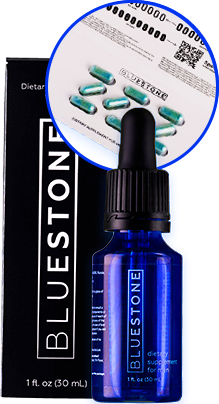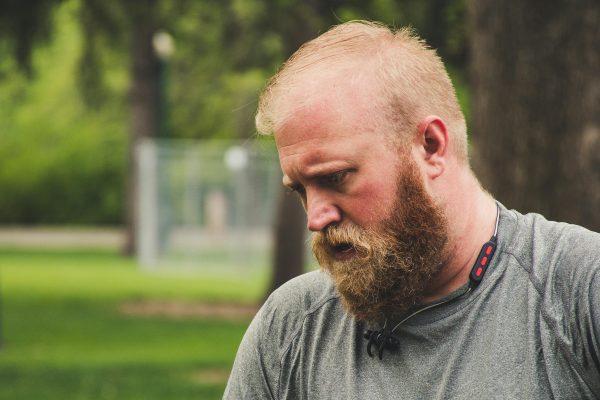Zinc is the 10th most common element in the body and helps with the functioning of more than 300 hormones and enzymes.
But, does Zinc make you harder in bed?
Hormonal effects of Zinc
A now-famous study conducted at Western Washington University evaluated the hormonal effects of 8 weeks of nightly supplementation provided. A group of football players was divided into two test groups that either received the supplement or a placebo.
The testing procedures included a double-blind and randomized protocol. Since most athletes are zinc deficient, the results were not all that surprising. The supplemented group, receiving 30 mg Zinc Monomethionine, 450 mg Magnesium Aspartate, and 10.5 mg Pyridoxine (Vitamin B-6) nightly, showed a blood plasma increase in both total and free (active) IGF-1.
The placebo group showed an effective decrease in both hormone forms.
Zinc is necessary for growth, sexual maturation, and reproduction.
Infertile men have been reported to have reduced seminal and serum zinc levels compared with fertile men.
The benefits of Zinc for sexually active guys
Zinc should be named THE MAN’S MINERAL.
Its presence in the body literally makes the difference between hormone profiles that put you in either high heels and sweater puppets, or baritone bad boy biker status. Zinc is a key factor in enzyme activation relating to the anabolic potential of testosterone, Insulin, IGF-1, GH, Prostaglandins, and about every other hormone or hormone-like substance relating to muscle growth.
If you have not as of yet realized how manly zinc is, try this.
Without adequate zinc supplies, you would not have a hard penis or enough muscle to power the hand to scratch it with. “Optimal” levels Zinc are absolutely vital to “Optimal” levels of Zinc are absolutely vital to maintain your erection.
Does Zinc make you harder and beat Erectile Dysfunction?
This Research shows the relationship between cellular zinc concentrations and serum testosterone cross-sectionally in men, 20 to 80 years of age.
Scientists measured men’s serum testosterone before and during marginal zinc deficiency induced by restricting dietary zinc intake. Dietary zinc restriction in normal young men was associated with a significant decrease in serum testosterone concentrations after 20 weeks of zinc restriction.
They also measured serum testosterone in elderly men (mean age 69) who were marginally zinc deficient before and after 3 to 6 months of zinc supplementation. Serum testosterone concentrations were significantly correlated with cellular zinc concentrations in the cross-sectional study. Conclusions? –
Zinc may play an important role in modulating serum testosterone levels in normal men.
The study “Effects of zinc supplementation on the sexual behavior of male rats” shows the correlation between zinc and sexual function. Rats were treated with 5 milligrams per day of a zinc supplement and were shown to have better sexual function. This particular study concluded that in males, zinc has a positive effect on arousal and maintaining an erection.
Conclusions –
Zinc therapy improves sexual competence of male rats; the effect is dose-dependent. An increase in the T levels is beneficial in this regard.
Zinc is also essential for proper growth and development as well as the regulation of gene activity and DNA synthesis. The human body needs a daily dose of zinc to maintain a steady state, as the body has no specialized zinc storage system.
Zinc is found naturally in many food sources, but animal foods are the richest sources of zinc.
Animal proteins are the best source of bioavailable zinc.
The bioavailability of zinc in plants is lower than in meat.
In addition, vegetarians typically eat high levels of legumes and whole grains, which contain phytates that bind zinc and inhibit its absorption.
Don’t forget that animal protein is also a premier source of bioavailable iron.
Low zinc and low iron often occur take place at the same time.
Zinc-rich foods

Zinc is found in a wide range of plant and animal sources, but animal protein foods provide the highest and most bioavailable form of zinc. Oysters contain more zinc per serving than any other food.
Other types of seafood that provide a significant amount of zinc include skate, anchovies, herring, sardines, crab, prawns, shrimps, mussels, and wrinkles.
Six oysters contain 76.7 mg of zinc.
Beef provides as much as 8.9 mg of zinc per 3-ounce serving, and other animal protein foods, including poultry and beans, contain anywhere between.
1 cup of chopped skinless chicken breast has 2.13 mg of zinc
1 cup of beans contains 5.4 mg of zinc
According to the National Institutes of Health
| Food | Milligrams (mg) per serving |
Percent DV* |
|---|---|---|
| Oysters, cooked, breaded, and fried, 3 ounces | 74.0 | 673 |
| Beef chuck roast, braised, 3 ounces | 7.0 | 64 |
| Crab, Alaska king, cooked, 3 ounces | 6.5 | 59 |
| Beef patty, broiled, 3 ounces | 5.3 | 48 |
| Lobster, cooked, 3 ounces | 3.4 | 31 |
| Pork chop, loin, cooked, 3 ounces | 2.9 | 26 |
| Baked beans, canned, plain or vegetarian, ½ cup | 2.9 | 26 |
| Breakfast cereal, fortified with 25% of the DV for zinc, 1 serving | 2.8 | 25 |
| Chicken, dark meat, cooked, 3 ounces | 2.4 | 22 |
| Pumpkin seeds, dried, 1 ounce | 2.2 | 20 |
| Yogurt, fruit, low fat, 8 ounces | 1.7 | 15 |
| Cashews, dry roasted, 1 ounce | 1.6 | 15 |
| Chickpeas, cooked, ½ cup | 1.3 | 12 |
| Cheese, Swiss, 1 ounce | 1.2 | 11 |
| Oatmeal, instant, plain, prepared with water, 1 packet | 1.1 | 10 |
| Milk, low-fat or nonfat, 1 cup | 1.0 | 9 |
| Almonds, dry roasted, 1 ounce | 0.9 | 8 |
| Kidney beans, cooked, ½ cup | 0.9 | 8 |
| Chicken breast, roasted, skin removed, ½ breast | 0.9 | 8 |
| Cheese, cheddar or mozzarella, 1 ounce | 0.9 | 8 |
| Peas, green, frozen, cooked, ½ cup | 0.5 | 5 |
| Flounder or sole, cooked, 3 ounces | 0.3 | 3 |
* DV = Daily Value.
Zinc Dietary supplements
Zinc is a common additive to many nutritional supplements but often appears as a stand-alone supplemental mineral. Zinc supplements are used in many anti-aging and antioxidant supplement formulations. Zinc also helps with proper hormone production and zinc supplements are often used as fertility boosters.
Zinc deficiency
Serious Zinc deficiency is common in developing countries, but rarely in the US.
But a slight lack of zinc is absolutely common in the US, according to data from the Third National Health and Nutrition Examination Survey (NHANES III).
Signs of Zinc deficiency
Zinc deficiency is characterized by growth retardation, loss of appetite, and impaired immune function.
In more severe cases, zinc deficiency leads to hair loss, diarrhea, delayed sexual maturity, impotence, and hypogonadism in men.
Zinc deficiency can and will result in a reduction in an androgen receptor count of 20-40 % and an increase in an estrogenic receptor count of 40-60 %.
Zinc Dietary supplements
Zinc is a common additive to many nutritional supplements but often appears as a stand-alone supplemental mineral. Zinc supplements are used in many anti-aging and antioxidant supplement formulations. Zinc also helps with proper hormone production and zinc supplements are often used as fertility boosters.
How much Zinc per day for a man
The recommended dietary allowance for zinc for men increases with age.
From ages 9 to 13, a boy needs 8 milligrams of zinc each day.
Once you reach age 14, you need 11 milligrams of zinc a day.
11 milligrams of zinc that how much zinc per day man should take with food or zinc supplement.
Some guys may need more zinc, according to the Office of Dietary Supplements.
Zinc toxicity
Zinc is toxic at high doses, so supplementation needs to be targeted to avoid toxic doses. Zinc is also present in many different supplements, so people taking multiple supplements, along with extra zinc or an immune-boosting concoction containing zinc, may end up with toxicity issues if used continuously.
Zinc toxicity is a medical condition involving overdosing or toxic overexposure to zinc. Such levels of toxicity were observed at the time of ingestion of more than 50mg of zinc.
Importance of Zinc for Bodybuilders and Athletes

According to M&F Bodybuilders should get in at least 30 milligrams of zinc daily with food and supplement.
Bodybuilders and other athletes have a greater need for minerals than people who don’t train.
Two reasons for that:
- Zinc is crucial for supporting recovery and improving health for those who tax their systems with intense training.
- Minerals (including Zinc) are wasted by sweat, so bodybuilders need to replace them to avoid deficits.
Zinc deficiency can cause up to a 63% reduction in androgen binding sites which can cause gyno by altering the androgen-to-estrogen activity ratio, (sweater- puppets?) Zinc deficiency increases the aromatization of androgens to estrogens.
- Some anabolic–androgenic steroids AAS reduce the level of Zinc in the seminal fluid after 14 days of administration. This is an additional inhibitory factor upon HPTA function.
- Prohormones such as 1 9-Norandrostenedione, 19-Norandrostenediol, 4- androstenedione, and 4-Androstenediol (and most other variants) are dependent upon the enzymes 1 7-BHSD and 3-BHSD for activity and conversion to more powerful androgens. Both 1 7-BHSD and 3-BHSD depend upon zinc.
Role of Zinc in the Body
- Zinc is probably best known for its role in fighting flu symptoms and is a common addition to immune-boosting formulations. Zinc aids in an immune response.
- Zinc acts as an anti-oxidant by way of the “zinc-activated” superoxide-dismutase system. The system helps protect cells from oxidation.
- Zinc deficiency prevents pancreatic beta-cells from storing or secreting Insulin.
- Zinc is necessary for protein metabolism.
- Zinc is necessary for DNA repair and cell division.
The prostate has the highest level of zinc concentration of all body organs, and it does not play nice if zinc deficiency is excessive and prolonged.
- Lactate Dehydrogenase and Carbonic Anhydrase are enzymes that allow the body to process lactic acid and carbon dioxide. Both are zinc-dependent.
- Blood Cortisol levels elevate significantly during times of zinc deficiency. This hinders GH release and IGF-1 formation. And this negatively alters the testosterone-to-cortisol ratio.
- Zinc is needed for vitamin A metabolism.
Zinc is intricate to the production of sperm and testosterone.
- The thymus gland shrinks if circulatory zinc levels and reserves are low. The thymus gland produces immune T-cells that protect against tumors and disease.
- The body contains about 2000 mg of zinc. Most are stored in the bones and muscles. Zinc is transported in the blood as a component of red blood cells. Of course, some other blood proteins carry zinc to other body tissues as well.
- About 55% of the body’s zinc is stored in slow-twist muscle fibers.
The Bottom Line
In conclusion, while there is evidence to suggest that zinc may play a role in supporting male sexual health, including improving symptoms of erectile dysfunction, it is important to approach this with a balanced perspective. Zinc is not a magic cure, and there are many factors that can contribute to sexual health and dysfunction. Maintaining a healthy lifestyle, including a balanced diet and regular exercise, is important for overall health and well-being, and seeking medical advice if necessary is crucial for addressing underlying conditions that may be contributing to sexual health issues. By taking a holistic approach to sexual health, including a focus on overall wellness and seeking professional advice as needed, individuals can take steps towards maintaining healthy and fulfilling sexual lives.
FAQs: Zinc and Its Effects on Men
Q: What does zinc do for men?
Zinc is an essential mineral that plays a vital role in various physiological processes in the body, including those specific to men. Zinc is involved in supporting immune function, promoting wound healing, aiding in DNA synthesis, assisting in protein synthesis, and participating in the development and function of reproductive organs. It also helps in the production of testosterone, the primary male sex hormone.
Q: What happens if I take zinc every day?
Taking zinc every day, within recommended dosage limits, can have several positive effects on your health. It can help support immune system function, promote wound healing, aid in proper digestion and metabolism, contribute to normal growth and development, and assist in maintaining healthy skin and hair. However, it is important to avoid excessive zinc intake, as it can lead to adverse effects. It is advisable to follow recommended daily intake guidelines or consult with a healthcare professional for personalized advice.
Q: Does zinc increase testosterone?
Zinc is involved in the production and regulation of testosterone, the primary male sex hormone. Studies have shown that zinc supplementation can help improve testosterone levels in individuals with zinc deficiency or those with suboptimal testosterone levels. However, it is important to note that increasing testosterone levels solely through zinc supplementation is not guaranteed to have a significant impact in individuals with normal zinc levels. Other factors, such as overall health, lifestyle, and individual variations, also influence testosterone levels.
Q: Does zinc make you strong?
While zinc is an important mineral for overall health and supports various physiological processes, including muscle development, it is important to note that taking zinc alone will not directly make you stronger. Building strength and muscle mass involves a combination of factors, including regular resistance training, proper nutrition, adequate rest, and overall balanced lifestyle habits. Zinc can play a supportive role by aiding in protein synthesis, but it is not a standalone solution for gaining strength.
Q: Does zinc help you get bigger?
Zinc contributes to protein synthesis, which is essential for muscle growth and repair. Adequate zinc intake, along with a well-rounded diet and appropriate exercise regimen, can support muscle development and overall growth. However, it is important to remember that gaining size and muscle mass involves a combination of factors, including proper nutrition, consistent training, adequate calorie intake, and individual genetics. Zinc alone is not sufficient to guarantee significant muscle growth or size increase.
Q: Should men take zinc?
Zinc is an essential mineral for overall health and well-being, and men can benefit from ensuring an adequate intake of zinc. However, individual needs may vary, and it is advisable to consult with a healthcare professional before starting any new supplementation regimen. They can assess your specific requirements, taking into consideration factors such as age, health status, dietary habits, and potential zinc deficiencies, to provide personalized advice on whether zinc supplementation is necessary or beneficial for you.
Please note that the information provided in this section is meant to offer a general understanding of zinc’s effects on men and should not replace individualized medical advice. It is always recommended to consult with a healthcare professional for personalized guidance based on your specific health needs and circumstances.

SCIENTISTS DISCOVERED A SIMPLE AND EFFECTIVE WAY TO GET RID OF ERECTILE DYSFUNCTION
Unique complex for potency and prostatitis
Bluestone includes capsules for daytime use and drops for night use. The fluid form is necessary for the maximum amount of natural ingredients to be absorbed overnight.
- Institute of Medicine. Food and Nutrition Board. Dietary reference intakes for vitamin A, vitamin K, arsenic, boron, chromium, copper, iodine, iron, manganese, molybdenum, nickel, silicon, vanadium, and zinc. Washington, DC: National Academies Press, 2001.
- Alaimo, K, McDowell, MA, Briefel, RR, et al. Dietary intake of vitamins, minerals, and fiber of person ages 2 months and over in the United States: Third National Health and Nutrition Examination Survey, Phase 1, 1988–91. Adv Data. 1994 Nov 14;(258):1–28.
- Maret, W, Sandstead, HH. Zinc requirements and the risks and benefits of zinc supplementation. J Trace Elem Med Biol. 2006;20:3–18. [PubMed abstract]
- Prasad, AS. Zinc deficiency: Its characterization and treatment. Met Ions Biol Syst. 2004;41:103–137.
- Heyneman, CA. Zinc deficiency and taste disorders. Ann Pharmacother. 1996;30:186–187.
- Hambidge, KM. Mild zinc deficiency in human subjects. In: Mills, CF. (Ed). Zinc in human biology. New York: Springer-Verlag, 1989;281–296.
- Ploysangam, A, Falciglia, GA, Brehm, BJ. Effect of marginal zinc deficiency on human growth and development. J Trop Pediatr. 1997;43:192–198.
- Hunt, JR. Bioavailability of iron, zinc, and other trace minerals from vegetarian diets. Am J Clin Nutr. 2003;78(3 Suppl):633S–639S.
- Kang, YJ, Zhou, Z. Zinc prevention and treatment of alcoholic liver disease. Mol Aspects Med. 2005;26:391–404.
- Kocaturk, PA, Kavas, GO, Erdeve, O, Siklar, Z. Superoxide dismutase activity and zinc and copper concentrations in growth retardation. Biol Trace Elem Res. 2004;102(1–3):51–59.
- Kato, S, Saeki, Y, Aoki, M, et al. Histological evidence of redox system break- down caused by superoxide dismutase 1 (SOD1) aggregation is common to SOD1-mutated motor neurons in humans and animal models. Acta Neuro- pathol (Berl). 2004 Feb;107(2):149–158.
- Landis, GN, Tower, J. Superoxide dismutase evolution and life span regula- tion. Mech Ageing Dev. 2005 Mar;126(3):365–379.
- Olin, KL, Golub, MS, Gershwin, ME, et al. Extracellular superoxide dis- mutase activity is affected by dietary zinc intake in nonhuman primate and rodent models. Am J Clin Nutr. 1995 Jun;61(6):1263–1267.
- Cuajungco, MP, Faget, KY. Zinc takes the center stage: Its paradoxical role in Alzheimer’s disease. Brain Res Brain Res Rev. 2003 Jan;41(1):44–56.
- Age-Related Eye Disease Study Research Group. A randomized, placebo-controlled, clinical trial of high-dose supplementation with vitamins C and E, beta carotene, and zinc for age-related macular degeneration and vision loss: AREDS Report No. 8. Arch Ophthalmol. 2001;119:1417–1436.
- Colagar, AH, Marzony, ET, Chaichi, MJ. Zinc levels in seminal plasma are associated with sperm quality in fertile and infertile men. Nutr Res. 2009 Feb;29(2):82–88.
- Beck, FW, Prasad, AS, Kaplan, J, Fitzgerald, JT, Brewer, GJ. Changes in cytokine production and T cell subpopulations in experimentally induced zinc-deficient humans. Am J Physiol. 1997;272:E1002–E1007.
- Lansdown, AB, Mirastschijski, U, Stubbs, N, Scanlon, E, Agren, MS. Zinc in wound healing: Theoretical, experimental, and clinical aspects. Wound Repair Regen. 2007;15:2–16.
- Hulisz, D. Efficacy of zinc against common cold viruses: An overview. J Am Pharm Assoc. (2003);44:594–603.
- Caruso, TJ, Prober, CG, Gwaltney, JM, Jr. Treatment of naturally acquired common colds with zinc: A structured review. Clin Infect Dis. 2007;45:569–574.
- Marshall, I. Zinc for the common cold. Cochrane Database of Systematic Reviews. 2000;2. Art. No.: CD001364. doi: 10.1002/14651858.CD001364.pub2.
- Patrick, L. Nutrients and HIV: Part two—vitamins A and E, zinc, B-vitamins,
and magnesium. Altern Med Rev. 2000 Feb;5(1):39–51.
- Salgueiro, MJ, Weill, R, Zubillaga, M, et al. Zinc deficiency and growth: Current concepts in relationship to two important points: Intellectual and sexual development. Biol Trace Elem Res. 2004;99(1–3):49–69.
- Wagner, PA, Bailey, LB, Christakis, GJ, Dinning, JS. Serum zinc concentrations in adolescents as related to sexual maturation. Hum Nutr Clin Nutr. 1985 Nov;39(6):459–462.







Top ,.. top top … post! Keep the good work on !
Top site ,.. amazaing post ! Just keep the work on !
Hey there! This post couldn’t be written any better! Reading through this post reminds me of my old room mate! He always kept talking about this. I will forward this article to him. Pretty sure he will have a good read. Many thanks for sharing!
I have been browsing online more than 3 hours today, yet I never found any interesting article like yours. It抯 pretty worth enough for me. Personally, if all web owners and bloggers made good content as you did, the net will be a lot more useful than ever before.
hey there and thank you for your information ?I have definitely picked up anything new from right here. I did however expertise several technical points using this web site, since I experienced to reload the web site lots of times previous to I could get it to load correctly. I had been wondering if your hosting is OK? Not that I am complaining, but slow loading instances times will often affect your placement in google and can damage your high-quality score if ads and marketing with Adwords. Anyway I am adding this RSS to my email and can look out for a lot more of your respective exciting content. Ensure that you update this again soon..
Thanks for your post. One other thing is the fact individual states in the United states of america have their unique laws in which affect homeowners, which makes it very, very hard for the our lawmakers to come up with a whole new set of rules concerning property foreclosure on property owners. The problem is that a state has own laws and regulations which may interact in a damaging manner in relation to foreclosure guidelines.
Hello! I could have sworn I’ve been to this site before but after checking through some of the post I realized it’s new to me. Anyways, I’m definitely happy I found it and I’ll be book-marking and checking back frequently!